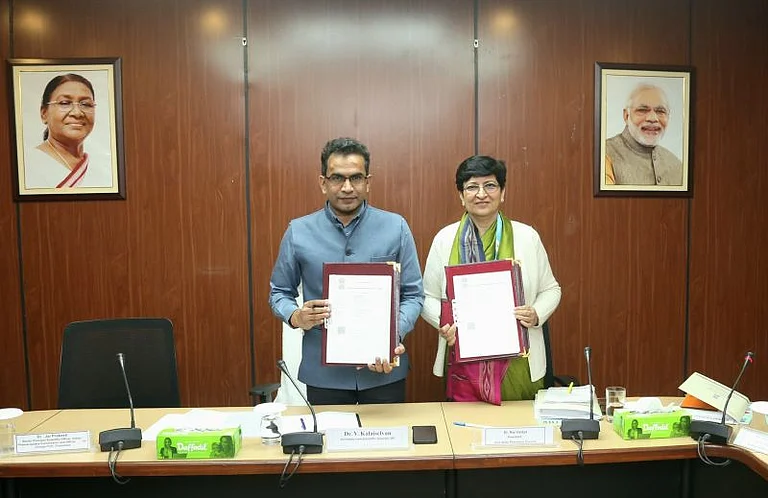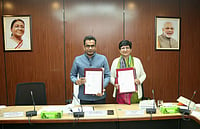Amid concerns raised by the World Health Organization (WHO), which has sought clarification from the Indian government on whether the cough syrup linked to the deaths of over 15 children in Madhya Pradesh was exported to other countries, the Indian Medical Association (IMA) has strongly condemned the arrest of Chhindwara-based paediatrician Dr. Praveen Soni in connection with the tragedy.
The IMA criticised the arrest as arbitrary and deeply unjust, arguing that holding a doctor criminally liable for the presence of toxic adulterants in a licensed pharmaceutical product reflects a grave misunderstanding of both medical practice and regulatory accountability. It emphasised that the responsibility for ensuring drug safety lies with the manufacturer and regulatory authorities, not with the prescribing physician.
The apex medical body has written to Union Health Minister JP Nadda, urging immediate intervention and the withdrawal of all legal action against the doctor.
In its representation, the IMA described the arrest as “a classic case of legal illiteracy,” stating that the procedure laid down by the Hon’ble Supreme Court for the arrest of a registered medical practitioner (RMP) had been blatantly disregarded. The organisation warned that such actions not only undermine the morale of the medical fraternity but also set a dangerous precedent by criminalising clinical practice without due process.
Following the death of the children after allegedly consuming a batch of locally manufactured cough syrup Coldrif, probes are ongoing, and preliminary findings have indicated the possible presence of diethylene glycol (DEG) or ethylene glycol (EG) — toxic industrial solvents — in the syrup.
The drug was prescribed by Dr. Soni, a senior paediatrician with over two decades of service. The local police, treating the matter as criminal negligence, arrested him earlier this week, prompting widespread criticism from the medical community.
“The presence of adulterated medicine in the market is a clear violation of the Drugs and Cosmetics Act, and responsibility for such lapses lies with the manufacturer and the drug regulatory authorities, not with the prescribing physician,” the IMA stated.
It maintained that medical professionals rely on the certification and approval processes governed by national and state regulatory authorities. “A doctor cannot be reasonably expected to test pharmaceutical formulations for toxic adulterants before prescribing them,” it said.
Calling Dr. Soni a “secondary victim” of the systemic failure, the IMA urged the Centre to recognise the broader accountability of regulatory enforcement and quality assurance in the pharmaceutical sector.
In its letter to the Health Minister, the IMA proposed a series of urgent systemic reforms aimed at preventing such tragedies in the future. It recommended the immediate recruitment and deployment of qualified drug inspectors at the state level to ensure effective monitoring of pharmaceutical manufacturing and distribution.
The IMA also called for mandatory testing of every batch of pharmaceutical excipients—such as propylene glycol, glycerin, and sorbitol—to detect and eliminate toxic impurities. Additionally, it stressed the need for developing and enforcing a Standard Operating Procedure (SOP) for nationwide drug recalls to facilitate the swift removal of harmful products from circulation.
To strengthen post-marketing surveillance, the IMA urged the enhancement of the Pharmacovigilance Programme of India (PvPI) for improved reporting and tracking of adverse drug reactions (ADRs). It further proposed a thorough audit and overhaul of Quality Management Systems (QMS) in pharmaceutical manufacturing units, particularly those supplying medicines under public health programmes.
The Association also emphasised the importance of periodic inspections and quality audits of both government and private pharmaceutical entities with records of recurrent quality failures.
The IMA’s statement also called for the sensitisation of law enforcement agencies to judicial guidelines concerning the arrest of medical professionals. Citing the Supreme Court’s ruling in Jacob Mathew v. State of Punjab (2005), the IMA reminded that arresting doctors without a preliminary inquiry or expert medical opinion violates established legal protections.
“This case reflects an urgent need for coordinated action between the health and justice systems, so that practitioners are not unfairly penalised for systemic failures,” the IMA said.
As outrage grows within the medical community, several state branches of the IMA have threatened to hold protests and observe a symbolic “black badge” day unless the case against Dr. Soni is withdrawn and accountability is fixed on the appropriate entities.



























